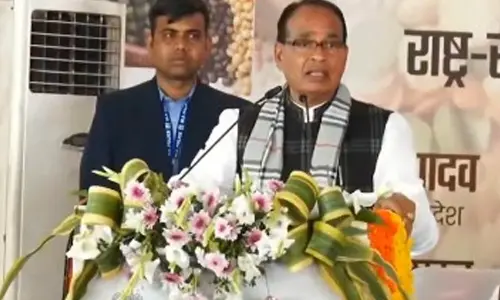The Foundation of Life

The National Family Health Survey NFHS4, 201516 indicates a massive increase in the institutional delivery rates in Telangana, reaching upto 915 per cent However, children starting breastfeeding within an hour of birth, a critical indicator, remains around at 37 per cent
The National Family Health Survey (NFHS-4, 2015-16) indicates a massive increase in the institutional delivery rates in Telangana, reaching upto 91.5 per cent. However, children starting breastfeeding within an hour of birth, a critical indicator, remains around at 37 per cent.
While the state has invested heavily on increasing institutional births in public health facilities through initiatives like provision of KCR Kits and standardization of labour rooms, the same has not resulted in an increase in breastfeeding rates within the state.
Breastfeeding – the most effective intervention to reduce neonatal mortality
About 21 babies out of 1000 live births in Telangana are unable to survive the critical first 28 days – neonatal period – of their life (SRS, 2016). The longer the delay in breastfeeding initiation, the greater the chances of neonatal mortality caused by infections.
Breastfeeding within the first hour of life has been shown to reduce high neonatal mortality by 22% (Lancet, 2006), preventing around 8.2 lakh child deaths per year. On the other hand, neonates for whom breastfeeding is delayed by 2-24 hours are at 33 per cent higher risk and, for delays beyond 24 hours, 85 per cent greater risk of mortality (Smith & Hurt, 2017).
Mother's first milk, colostrum, contains essential antibodies which are necessary for the baby to develop immunity to fight against viruses, bacteria and allergens that could otherwise lead to various infections such as respiratory diseases, diarrhoea, etc.
Breastfeeding has advantages in improving the Intelligence Quotient of children by additional three points, resulting in an estimated INR 4300 Crores annual addition to India’s GNI (Gross National Income).
Barriers in early initiation of breastfeeding
Breastfeeding initiation, exclusively for first six months and continuously for two years of a child’s life is a topic of discussion for over two decades now. Unfortunately, the progress made is unsatisfactory In India. The primary reason for sub-optimal levels of breastfeeding is uni-directional targeting of pregnant women on the issue.
As per NFHS-4, 93 per cent pregnant women were advised on breastfeeding, but a matching focus is not seen on developing an enabling environment for the mother to breastfeed, whether at the institution where deliveries are conducted, in the household, community or the workplace. There are various myths and socio-cultural norms hindering breastfeeding. In a state like Telangana, where two third births happen through caesarean section, there is an added deterrence in breastfeeding initiation.
In contrast to popular belief, experts advice that a newborn be immediately put on mother’s chest; sedation of mother also does not have any impact on initiation of breastfeeding. Over the years, the disparity in rates of breastfeeding amongst rural and urban population has narrowed which calls for universal support, necessitating policy revamping.
World Breastfeeding Week
The World Breastfeeding Week is celebrated in the first week of August globally to draw attention to this critical intervention. Breastfeeding helps prevent malnutrition in all its forms. It ensures food security and good health for infants and young children and helps bring people and nations out of the hunger and poverty cycle. It is therefore a foundation of life.
Outcomes related to breastfeeding require a change in thinking and policies at state and national level. It will be advantageous to invest in lactation counsellors and specific capacity development of staff nurses and ANMs in the state to guide and assist mothers in making the most of the first hour of birth.
Also, the platforms of Pradhan Mantri Surakshit Matritva Abhiyaan and antenatal check-up can be used to counsel mothers, husbands and mothers-in-laws towards the importance of breastfeeding and their role in supporting the mother breastfeed. The state has made efforts in recording early initiation of breastfeeding at government hospitals and similar efforts need to be taken up by private hospitals.
These actions implemented efficaciously will help Telangana in reaching its resolutions of World Health Assembly and Poshan Abhiyaan in preventing stunting and undernutrition among children.
Viziendira Boyi, IAS, Director, Dept. of Women Development & Child Welfare, Govt. of Telangana; with inputs from UNICEF Hyderabad Field Office















